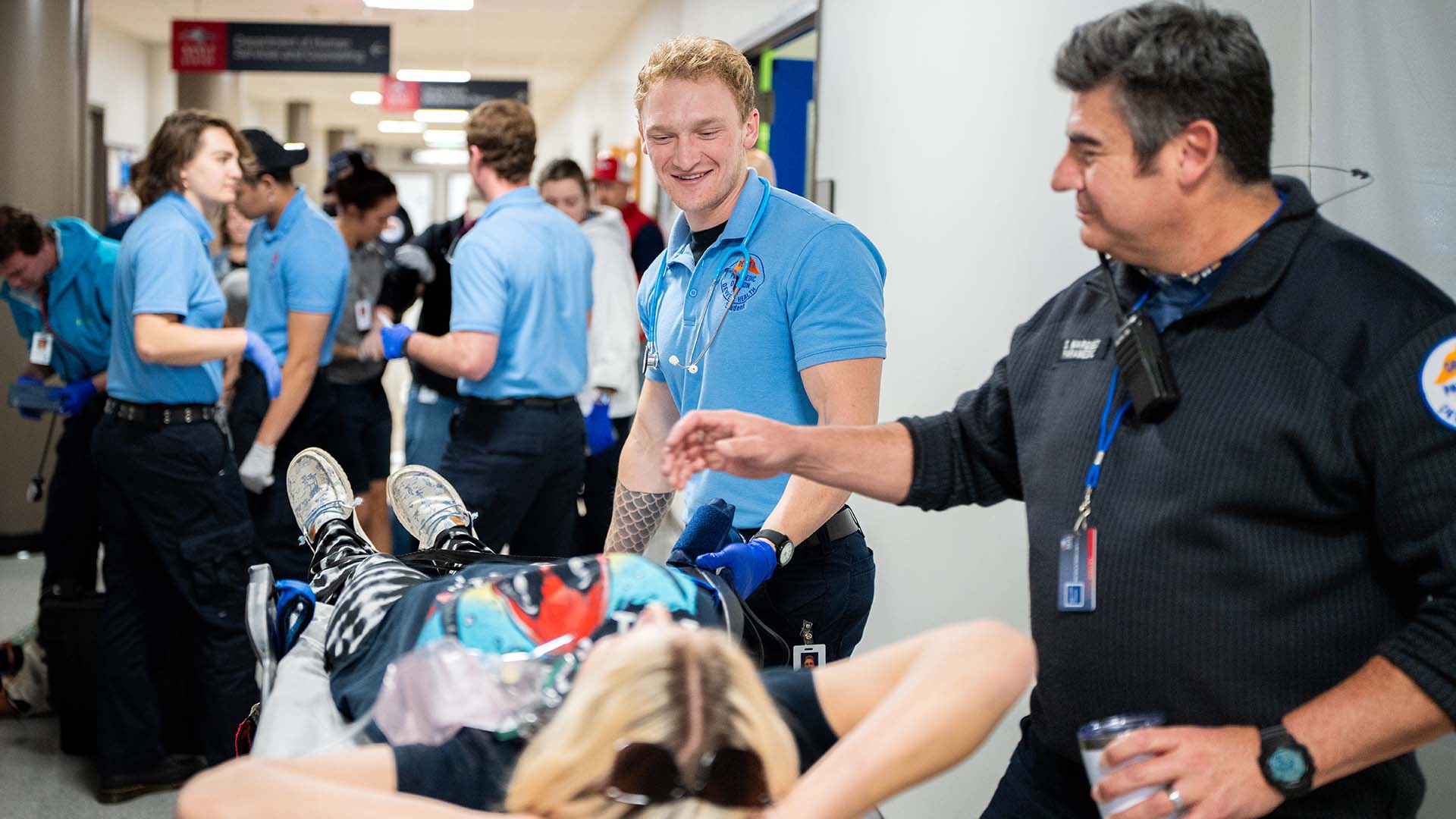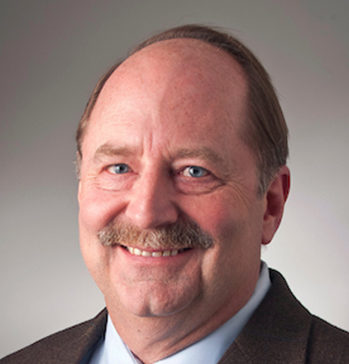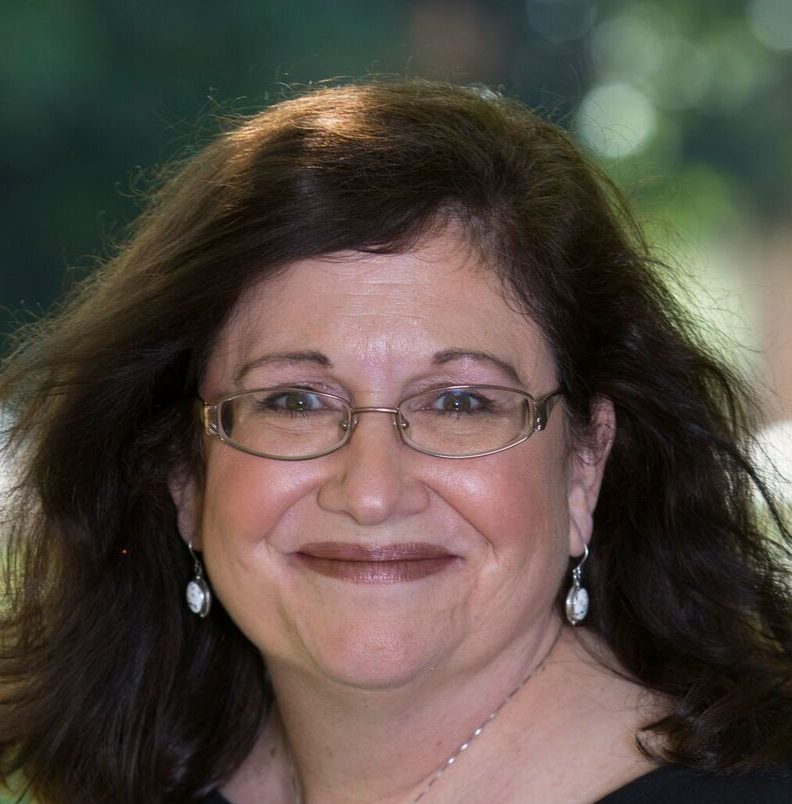Learners connect with leaders
Colorado’s open-access university provides premier access to national experts

When on the first day of class Gioia Fisk’s new professor told his students he was the former director of the Naval Criminal Investigative Service, the criminal-justice student decided she had to do some Googling.
Sure enough, not only was Andrew Traver the former director of NCIS, he had also appeared in an episode of “NCIS: Los Angeles.” “This guy’s for real,” she remembered thinking to herself.
Traver joined the faculty at Metropolitan State University of Denver in 2019 and teaches two classes in the Department of Criminal Justice and Criminology: Federal Law Enforcement and American Gangsters.
Fisk transferred to MSU Denver when she heard that its criminal-justice program was tops in the state and enrolled before she even learned one of its instructors led the real-life NCIS, she said. Traver’s resume – and her subsequent coursework with him – has served as confirmation that she made the right decision.
“You’re learning from an expert, which I think is the best way to learn,” she said.
Traver is one of many leaders in their fields teaching at MSU Denver.
You can study jazz with Ron Miles, a Grammy-nominated artist in the Colorado Music Hall of Fame. You can take photojournalism with Kenn Bisio, who studied under Ansel Adams and has been published in Sports Illustrated, National Geographic and the New York Times. You can learn to brew beer with Scott Kerkmans, one of the first five Certified Cicerones in the world, or learn to fly an airplane with Tanya Gatlin, a United Airlines pilot.
In MSU Denver’s School of Education, 95% of the faculty were teachers themselves; the College of Business is internationally accredited by the Association to Advance Collegiate Schools of Business, something only 5% of business colleges have achieved, because of its outstanding faculty.
Connecting students with leaders in their disciplines is a priority for MSU Denver President Janine Davidson, Ph.D., so that students learn the practical applications of what they’re studying.
“To have faculty come in with these real-life experiences to complement – not replace – traditional academics really enriches your experience,” Davidson said.
Davidson has both types of experience: She was a tenure-track professor at George Mason University and also taught at Georgetown University and Davidson College. She’s an Air Force veteran with experience at the Pentagon and a foreign-policy think tank as well. Immediately before signing on with MSU Denver, she served as undersecretary of the U.S. Navy.
This spring, Davidson joined MSU Denver’s impressive roster of faculty to co-teach a course on freedom of speech with the University’s general counsel, David Fine, who was a partner at the international law firm Holland & Knight before becoming MSU Denver’s top lawyer.
MSU Denver President Janine Davidson and General Counsel David Fine introduce students to their class on freedom of speech during the first class of the spring semester. Video by Amanda Schwengel
For Davidson, that crucial connection between student and teacher isn’t just for the students’ benefit.
“I want to know what’s going on with students. That’s why we’re here,” she said. “I know from being a professor previously that hanging out with students makes you smarter because they ask really important questions.”
Experience in the classroom
MSU Denver’s innovative approach to higher education is also attracting interest from players on the global stage such as former Mexico President Vicente Fox and former U.S. Sen. Gary Hart.
Fox and his wife, Marta Sahagún, established a partnership with MSU Denver’s Health Institute that takes Roadrunners to a clinic in San Miguel de Allende, Mexico. MSU Denver students from health-connected majors such as social work and nutrition travel to Mexico to serve alongside clinicians at a facility that provides rehabilitation and therapy for underserved adults and children.

Hart, meanwhile, developed a course with MSU Denver faculty members called Virtue and the American Republic, which explores the challenges and obstacles that have shaped civic duty over time. He participates in the class, which is cross-listed in history, philosophy and political science and is taught by Associate Professor of History Shelby Balik.
“I have been pleasantly surprised at the discussion in the class and the thoughtfulness of the students’ comments and responses. It’s a serious course,” Hart said.
Students in Hart’s class study subjects including Greek and Roman political philosophy as well as Hart’s 2016 book “The Republic of Conscience.” It examines the growing gap between America’s founding principles and the current political landscape. Guest speakers include Denver Mayor Michael B. Hancock and Colorado Attorney General Phil Weiser.

Students must also participate in some sort of civic engagement as their final project. As a senator, Hart advocated for more Americans participating in service, much like his friend the late U.S. Sen. John McCain, who championed the establishment of the National Commission on Military, National and Public Service on which Davidson serves.
“Any university in America would be proud to offer this course,” said Hart, who has degrees from Yale and Oxford.
Jared Dubiel, a biology major in the Honors Program with a philosophy minor, said he’s considering doing a project with Denver Urban Gardens and wants to work in the National Park Service or the Bureau of Land Management. Hart worked for the U.S. Department of the Interior, which oversees the NPS and BLM, and helped pass major environmental and conservation legislation in the Senate.
“This class has provided a great way to talk about what it is to be an American and why we should try and help one another as a community,” he said. “We could definitely use more conversations like that.”
Keeping it real
The University’s drive to connect learners with leaders in their field is paying off for criminal-justice student Fisk, who also works as an intern in a northern Colorado district attorney’s office. While she knows she has a lot to learn about criminal justice, at the first university she attended, she didn’t feel that the faculty had a good grasp on how the concepts they were teaching were practiced in the real world.
“I would sit in class and listen to some of these professors, and I would think, ‘What are you guys talking about? That’s not how that works,’” she said.
Traver’s classes were a stark contrast, she said.
In addition to his NCIS leadership, he spent 26 years in the Bureau of Alcohol, Tobacco, Firearms and Explosives (ATF) as a criminal-investigator special agent. He is eminently qualified to discuss gangs and federal law enforcement, having come in contact with members of the Hells Angels, the Aryan Brotherhood, the Latin Kings and others during a career that included assignments in Chicago, Denver, New Orleans, Philadelphia and San Francisco.

Even with his impressive resume, Traver is approachable and relatable, Fisk said.
“It’s kind of strange to say that about someone who ran a law-enforcement agency like NCIS, was nominated to be director of ATF and rubbed shoulders with President (Barack) Obama,” she said.
To bring the full extent of experience into the classroom, Traver taps his network: He has brought to the classroom guest speakers such as ATF agents who participated in the 1993 Waco siege and a U.S. marshal who helped with the 2019 trial of cartel leader Joaquin “El Chapo” Guzman. Between his connections and his experience, Traver offers an unrivaled college classroom experience.
“I think I have a good background as a practitioner. I have a trove of what I think are interesting anecdotes that are very realistic,” Traver said. “It’s not like watching any of the scripted crime-drama television shows. It’s very real.”







